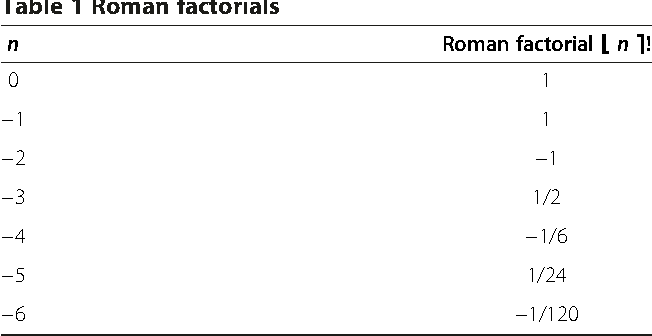
Factorials
As a member, you'll also get unlimited access to over 79,000 lessons in math, English, science, history, and more. Plus, get practice tests, quizzes, and personalized coaching to help you succeed. Feb 19, 2018 This precalculus video tutorial provides a basic introduction into factorials. It explains how to simplify factorial expressions as well as how to evaluate factorial expressions. It discusses how.
(redirected from Factorials)Also found in: Thesaurus, Medical, Encyclopedia.
fac·to·ri·al
(făk-tôr′ē-əl)n.factorial
(fækˈtɔːrɪəl) mathsnfac•to•ri•al
(fækˈtɔr i əl, -ˈtoʊr-)n.
fac·to·ri·al
(făk-tôr′ē-əl)| Noun | 1. | factorial - the product of all the integers up to and including a given integer; '1, 2, 6, 24, and 120 are factorials' mathematical product, product - a quantity obtained by multiplication; 'the product of 2 and 3 is 6' |
| Adj. | 1. | factorial - of or relating to factorials |

factorial
[fækˈtɔːrɪəl]Want to thank TFD for its existence? Tell a friend about us, add a link to this page, or visit the webmaster's page for free fun content.
Link to this page:
The factorial of a number is the product of all the whole numbers, except zero, that are less than or equal to that number. For example, to find the factorial of 7 you would multiply together all the whole numbers, except zero, that are less than or equal to 7. Like this:
7 x 6 x 5 x 4 x 3 x 2 x 1 = 5,040
The factorial of a number is shown by putting an exclamation point after that number. So, 7! is a way of writing “the factorial of 7” (or “7 factorial”).
Here are some factorials:
1! = 1 = 1
2! = 2 x 1 = 2
3! = 3 x 2 x 1 = 6
4! = 4 x 3 x 2 x 1 = 24
5! = 5 x 4 x 3 x 2 x 1 = 120
6! = 6 x 5 x 4 x 3 x 2 x 1 = 720
7! = 7 x 6 x 5 x 4 x 3 x 2 x 1 = 5,040
8! = 8 x 7 x 6 x 5 x 4 x 3 x 2 x 1 = 40,320
9! = 9 x 8 x 7 x 6 x 5 x 4 x 3 x 2 x 1 = 362,880
10! = 10 x 9 x 8 x 7 x 6 x 5 x 4 x 3 x 2 x 1 = 3,628,800
11! = 11 x 10 x 9 x 8 x 7 x 6 x 5 x 4 x 3 x 2 x 1 = 39,916,800
12! = 12 x 11 x 10 x 9 x 8 x 7 x 6 x 5 x 4 x 3 x 2 x 1 = 479,001,600
Factorials are useful. They can show how many different ways there are to order or arrange a set of things. For example, if you have 5 books on a shelf, and want to know how many different ways there are to order or arrange them, simply find the factorial of 5:
5! = 5 x 4 x 3 x 2 x 1 = 120
This shows that you can arrange 5 books 120 different ways.
Here's a bit of trivia: mathematicians have decided that the factorial of zero, or 0!, is 1. Why? Because you can arrange a set of nothing, an empty set, in just one way—as nothing, an empty set.
Using Scientific NotationPowers and Exponents
